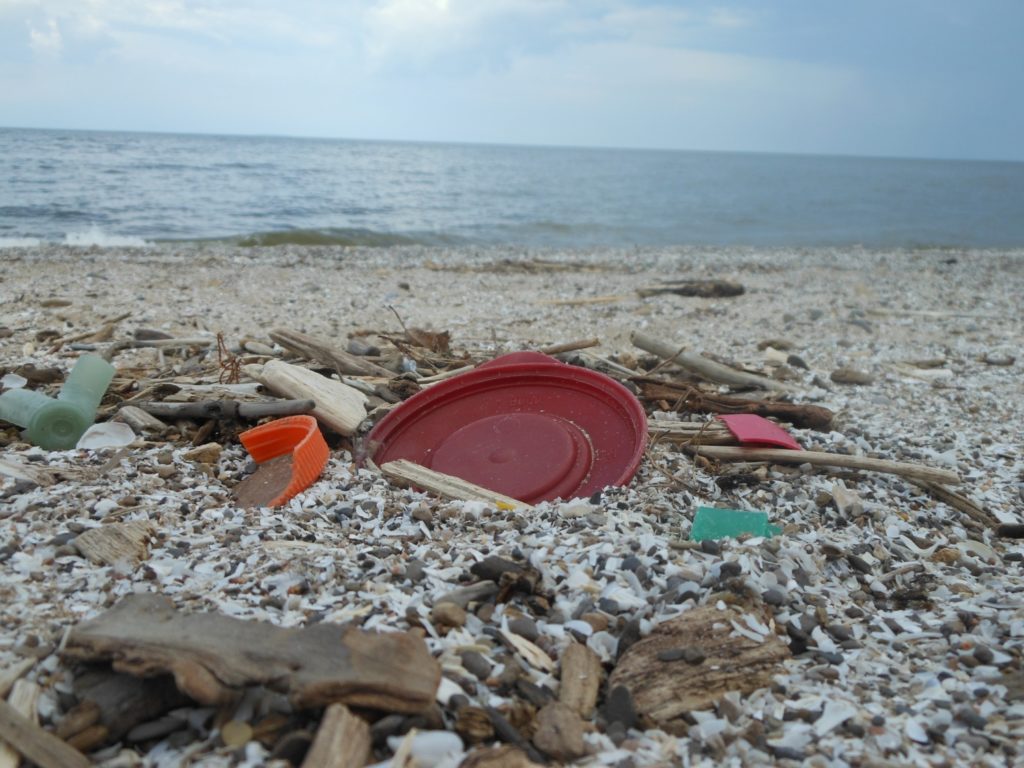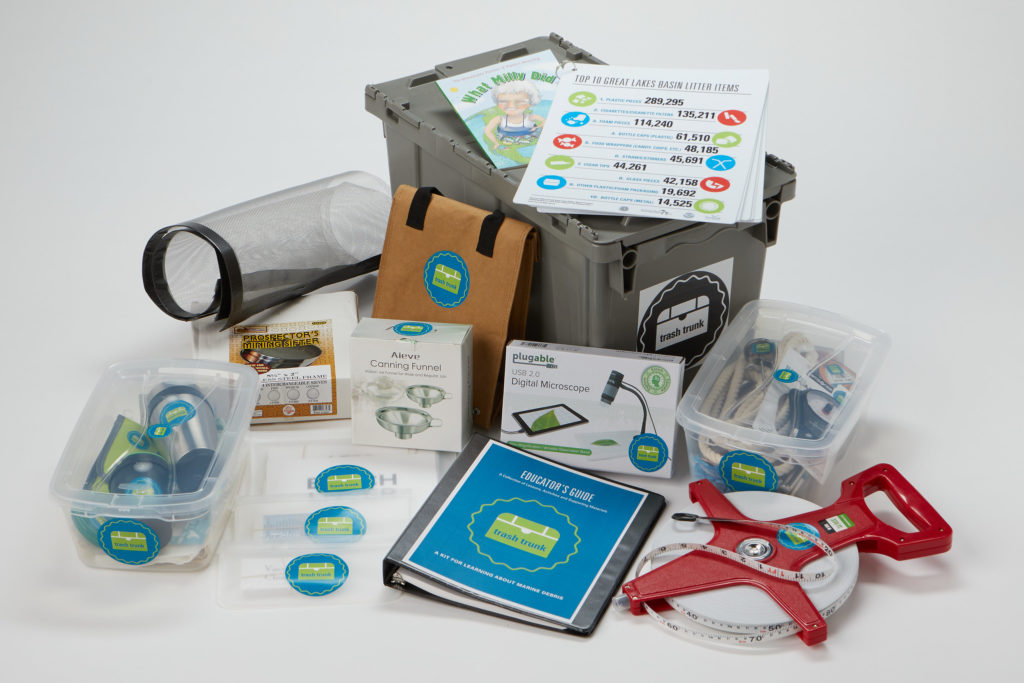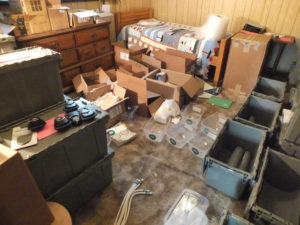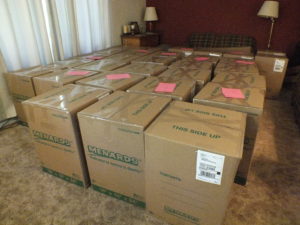Using drama as an introduction to marine debris prevention

Plastic pollution at the Magee Marsh Wildlife Area on Lake Erie demonstrates the problem of marine debris in the Great Lakes. Image credit: NOAA
Wisconsin Sea Grant is leading one of six projects recently funded by the National Oceanic and Atmospheric Administration’s Marine Debris Program. The projects, announced today, focus on preventing the introduction of marine debris (trash, fishing gear and microplastics) into coastal and Great Lakes environments.
Wisconsin’s project is, “The Play’s the Thing: Using Drama as an Introduction to Marine Debris Prevention and Meaningful Stewardship Experiences.” Led by Ginny Carlton with help from Anne Moser and Jim Hurley, the project will harness the power of storytelling to engage, educate and inspire performing artists and community members to be committed stewards of their Great Lakes watershed.
The team will work with the American Players Theater to pilot a theatrical piece about marine debris science to educate and motivate change in two Lake Michigan communities (Racine and Egg Harbor, Wisconsin). In addition to the performance, the project includes marine debris prevention workshops, cleanup events, and public outreach and education activities. The script from the play will be available for use for Great Lakes education after the project is completed.
The other five projects are coming from Sea Grant programs in Florida, Georgia, Hawai’i, Illinois-Indiana and Puerto Rico. They were awarded $300,000 in federal funds, matched by nonfederal contributions, bringing the total investment to approximately $600,000. The activities begin this summer and continue for up to two years.
See the full list of projects.
“The continued effort between Sea Grant and the Marine Debris Program leverages the strengths of both programs to effectively address marine debris challenges nationwide,” said National Sea Grant College Program director Jonathan Pennock. “We look forward to seeing these new and creative strategies for marine debris prevention.”
This is the second year that Sea Grant and the Marine Debris Program offered a joint funding opportunity. Projects funded in the first year were aimed at reducing marine debris across the U.S.
The post Using drama as an introduction to marine debris prevention first appeared on Wisconsin Sea Grant.Blog | Wisconsin Sea Grant
https://www.seagrant.wisc.edu/blog/using-drama-as-an-introduction-to-marine-debris-prevention/?utm_source=rss&utm_medium=rss&utm_campaign=using-drama-as-an-introduction-to-marine-debris-prevention

 If you’re among the many who are looking for online learning materials for use at home, you might want to check out the Trash Trunk. This new learning kit focuses on trash found in our waterways, otherwise known as marine debris. Its free lessons are applicable for learners at levels kindergarten through adult in both formal and informal educational settings.
If you’re among the many who are looking for online learning materials for use at home, you might want to check out the Trash Trunk. This new learning kit focuses on trash found in our waterways, otherwise known as marine debris. Its free lessons are applicable for learners at levels kindergarten through adult in both formal and informal educational settings.
